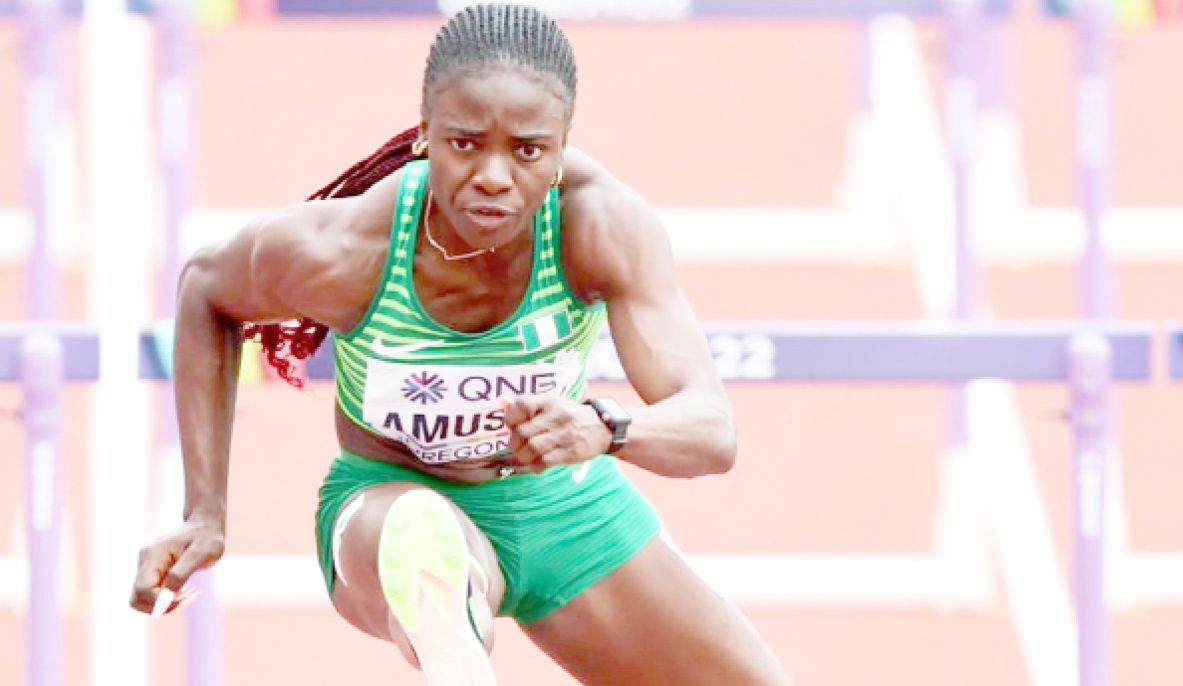Start preparing for next African Games
The 13th African Games ended on Sunday, March 24, 2024, in Accra, Ghana, with Egypt topping the medal table with 189, comprising 101 gold, 46 silver and 42 bronze. Nigeria came second with 120 medals: 47 gold, 33 silver and 40 bronze, dominating track and field events and dusting even Kenya in most of them. […]

Nigeria’s queen of the track, Tobi Amusan will lead the charge for medals in athletics at the African Games in Ghana as track and field events kick off today in Accra
The 13th African Games ended on Sunday, March 24, 2024, in Accra, Ghana, with Egypt topping the medal table with 189, comprising 101 gold, 46 silver and 42 bronze. Nigeria came second with 120 medals: 47 gold, 33 silver and 40 bronze, dominating track and field events and dusting even Kenya in most of them.
South Africa placed third and climbed the podium with 106 medals: 32 gold, 32 silver and 42 bronze. The countries that completed the top five were Algeria, with 114 medals: 29 gold, 38 silver and 47 bronze; and Tunisia with 87 medals: 21 gold, 27 silver and 39 bronze.
The host country, Ghana, took the sixth position with 68 medals: 19 gold, 29 silver and 20 bronze. Kenya, the powerhouse of athletics in Africa, came in 10th position with 35 medals: eight gold, seven silver and 20 bronze.
This year’s African Games was acclaimed a resounding success, where over 5,000 athletes competed in 29 sports, of which Nigeria participated in 25. Athletes and sports leaders were satisfied, praising the very good competition conditions. Fans, spectators and other sports enthusiasts were treated to great moments of high-level entertainment.
EDITORIAL: Don’t attack critics; just fix the economy
Nigeria’s Minister of Sports Development, John Owan Enoh, hailed the outstanding performance of Team Nigeria. Conveying President Bola Tinubu’s congratulatory message to the athletes, Enoh commended them for putting Nigeria “on the firm pedestal as a leading sports powerhouse on the continent of Africa.”
The African Games, formerly known as the All-Africa Games or the Pan African Games, acts as a precursor to the Olympic Games; serving as qualifiers for eight Olympic sports, 15 non-qualifying and seven demonstration sports.
The games showcase emerging trends and sports disciplines, including swimming, athletics, badminton, cycling, tennis, table tennis, wrestling and triathlon, in addition to the demonstration sports: eSports, Mixed Martial Arts (MMA), sambo and scrabble.
The sporting event serves as an avenue to celebrate and foster Africa’s athletic excellence, cultural heritage and unity. It also plays a pivotal role in advancing youth education, gender equality and social cohesion; aligning with the aspirations of Agenda 2063 for “The Africa We Want” – the continent’s masterplan for transforming into a global powerhouse within 50 years.
Traditionally, the African Union (AU) organised the games, but in 2019, the AU, the Association of National Olympic Committees of Africa (ANOCA) and the Association of African Sports Confederations (AASC) all signed a deal to run the games as an Olympics qualifier.
Historically, the roots of the games trace back to a General Assembly of African Ministers of Youths and Sport held in 1963 in Dakar, Senegal, leading to the inaugural edition in Brazzaville, Congo, in 1965. The success of the games led to the creation of the Supreme Council for Sports in Africa (SCSA), which was recognised by the then Organisation of African Unity (OAU) as the official coordinating body for continental sports. In 2013, the SCSA was dissolved, transferring all functions to the AU Commission, and in 2016, the AU Sports Council Secretariat was established to further sports development and coordinate the games.
Nigeria is not new in the games as it has competed at every edition, with its athletes winning a total of 1,326 medals. It hosted the eighth edition in Abuja from October 5 to 17, 2003.
Therefore, the nation should use the outcome of its impressive outing in Ghana as a platform to start preparations for the 14th edition scheduled for Egypt in 2027. It should use it as a platform to bring youths together and harness their potential. We call on the officials to understand the importance of early preparation and to work towards Nigeria exceeding its performance in the next edition.
Also, Daily Trust enjoins the Nigerian contingent to endeavour to participate and excel in all the 29 sports at the games instead of the 25 it participated in at the 13th edition. Nigeria should expand into the so-called lesser sports that contributed to the medal haul by Egypt, including teqball, sambo, speed-ball, scrabble, pickleball, MMA and Esports.
Therefore, Nigeria’s sports authorities must develop the structures and strengthen the sporting federations towards excellence.
